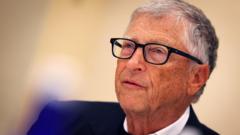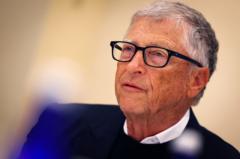In a significant shift within his administration, President Trump has dismissed national security adviser Michael Waltz, mainly due to concerns over his hawkish stance and a recent security breach involving sensitive military discussions. Secretary of State Marco Rubio will now assume both roles temporarily as the administration grapples with critical foreign policy issues.
Trump Reshuffles National Security Team Amid Ongoing Global Challenges

Trump Reshuffles National Security Team Amid Ongoing Global Challenges
President Trump has officially removed Michael Waltz from his position as national security adviser, appointing Secretary of State Marco Rubio as interim replacement.
In a surprising turn of events, President Trump announced yesterday the removal of his national security adviser, Michael Waltz. This decision marks the first major personnel shift among the White House's senior aides during his second term, a change that the president had hoped to avoid.
Waltz's departure is linked to an incident where he mistakenly leaked sensitive information by including a journalist in a private Signal chat meant for discussing a military operation in Yemen. Concurrently, Trump has proposed Waltz’s nomination as the U.S. ambassador to the United Nations. However, ongoing tensions between Waltz’s aggressive military policies and Trump’s desire for diplomatic engagements with nations like Iran and Russia had already placed him in a precarious position.
Taking over his duties on an interim basis, Secretary of State Marco Rubio now holds both positions, a dual-role that hasn't been seen since Henry Kissinger's tenure during the Nixon and Ford administrations. The administration is poised at a critical juncture as internal disagreements on strategies regarding China, Russia, and Iran are sharpening under the scrutiny of Waltz's exit.
Additionally, in the broader context of foreign policy changes, a fund backed by Abu Dhabi is reportedly eyeing a $2 billion deal leveraging digital coins created by Trump’s cryptocurrency business. Meanwhile, notable figures such as Elon Musk express waning confidence in their budgetary goals post-Trump's first 100 days in office, highlighting an ongoing global recalibration in response to the shifting political landscape.
The next national security adviser will be pivotal in shaping the administration's approach to pressing international issues, indicating a transformative period for U.S. foreign policy.





















